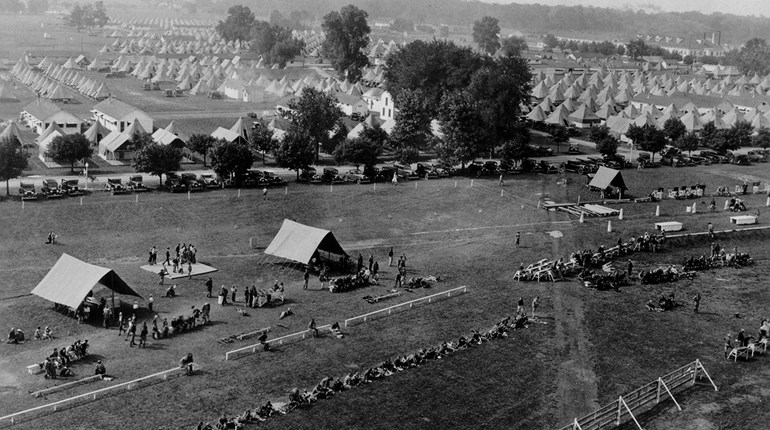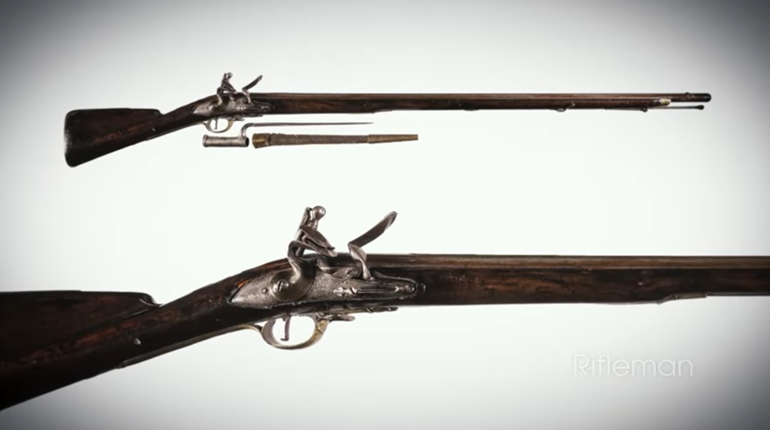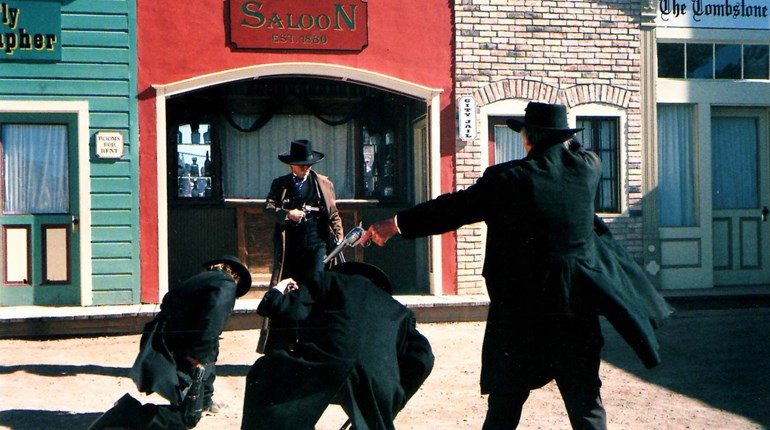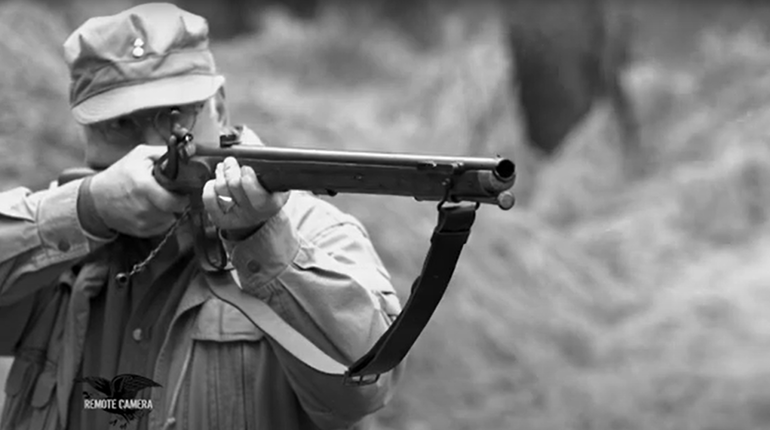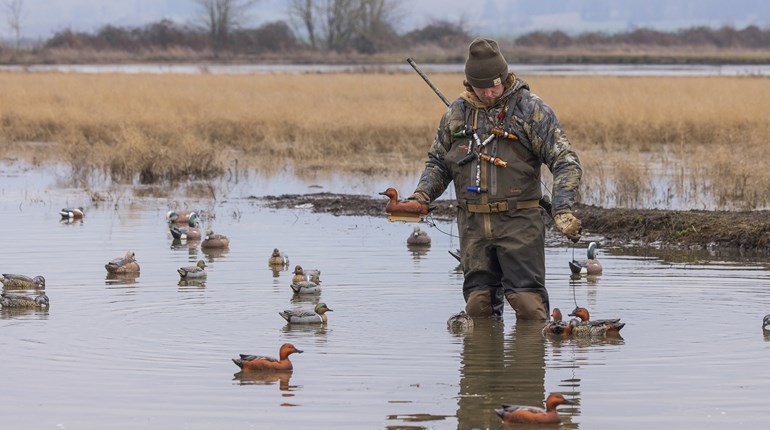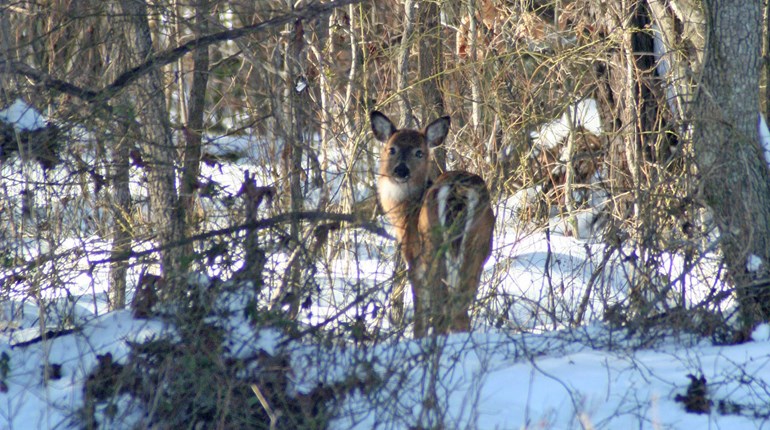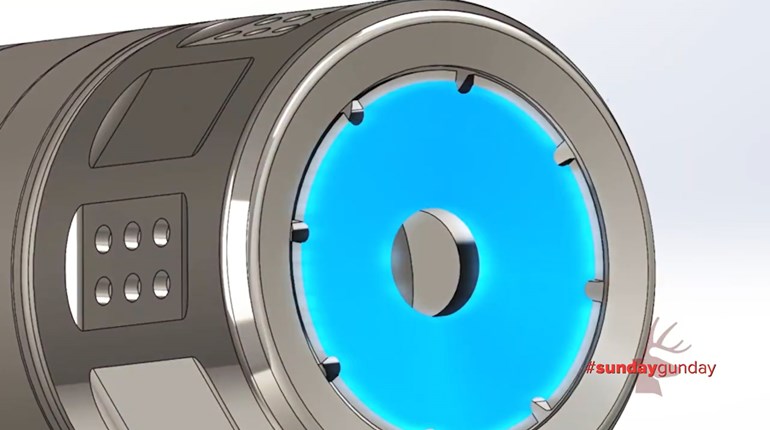
The grizzly charged from nearly point-blank range. Hugh Glass had only seconds to react, yet instinctively held his fire until the last possible instant. He knew he had but one shot from his muzzleloader, and had to make it count.
When the bear was only a few feet away and closing at full speed, Glass jerked the trigger of his rifle, sending a large ball deep into the bear’s chest. But the bullet did little to slow the sow’s progress. Motherly instinct is strong, and the female grizzly believed her two cubs were in danger. In reality, it was Glass who was in peril. He had stumbled upon the three bears by accident, and now he was paying the price.
The female grizzly bowled Glass over and immediately began fiercely biting and clawing his head and shoulders. She then bit into his midsection and shook him like a dog shaking a chew toy. She continually raked him with her claws, mauling him severely as he fought for his life.
Glass’s two nearby companions heard the shot, the growls of the bear, the sounds of the melee and the mountain man’s screams. Rushing to his aid, they fired their rifles into the sow, killing her. But when they pulled the carcass from atop Glass what they saw was horrifying.
Hugh Glass was covered with blood from deep bite wounds and the grizzly’s claws. His clothes were shredded and he was bleeding profusely from injuries too numerous to count. In short, Hugh Glass was dying right before their eyes. It was obvious he would only live a short time, possibly only minutes.
It was September 1823, and Glass and his two companions were part of a larger beaver trapping expedition that had left St. Louis earlier in the year. About 40 years of age, Glass was one of the older men of the group and also one of the most experienced in wilderness travel and survival. But he had made a serious mistake that day while hunting for meat for the expedition’s crew—he had casually walked into a river thicket where he could see only a few feet in any direction.
The other two trappers did what they could for their friend, then sat silently nearby, waiting for him to die. But he didn’t. Somehow, miraculously, Hugh Glass just kept breathing. Surely he wouldn’t make it through the coming night, they thought, but he did.
The next morning they carried Glass back to their main encampment, built a litter, and the group proceeded to carry the injured man along with them as they traveled. They were in hostile Indian country, and every day they tarried were in more and more danger of being attacked by Arikaras, a tribe of fierce, unpredictable warriors. Moving Hugh Glass made the pain from his injuries even more unbearable but the expedition had no choice...they had to keep moving.
Moaning from time to time, Glass continued to cling to life. Eventually, the expedition leaders (Ashley and Henry) made a decision. They asked for two volunteers to remain behind with Glass and bury him when he died. That way, the expedition could move faster and the volunteers could catch up later.
The only problem was that no one stepped forward, all believing it was suicide to stay behind. And besides, why should they risk their hides for a dead man? Ashley and Henry finally offered an increase in pay for any volunteers willing to chance the assignment, and two men finally raised their hands: Fitzgerald and Bridger. Only 19 years old at the time, Jim Bridger would eventually become a famous mountain man in his own right many years in the future.
The two men stayed with Glass for several days as he weakened and slipped in and out of consciousness. Infection had set in to many of his wounds, so it could only be a short time now. But somehow day dragged into day and Fitzgerald finally convinced the younger Bridger that they should leave Glass.
“Hell, he’s gonna die anyway,” Fitzgerald likely reasoned. “Ain’t no one ever lived through what he’s been through. You want them Injuns to catch us? You know what they’ll do to us if they do?”
Bridger finally gave in to the older man, and the next morning the pair laid the unconscious Hugh Glass into a shallow grave, put a buffalo robe over him, threw a little dirt on top and left. They even took Glass’s rifle, knife and “possibles” bag. In essence, the severely injured Hugh Glass was left to die with nothing, alone, in what one day would become the northwest corner of South Dakota.
But Hugh Glass did not die. He awoke from his coma dizzy, nauseous and feverish, but no fever ever burns as hot as the heat of hate. At that moment he willed himself to live so that one day he could take his just revenge on the two men who had left him to die.
Hugh Glass’s story of wilderness survival has become the stuff of Western legend. He began by crawling, then hobbling, then eventually walking upright again, traveling some 200 miles to Fort Kiowa. His wilderness skills served him well during the many weeks it took him to make the journey, surviving on roots, berries and whatever else he could find.
For instance, one day he came upon several wolves that had killed a bison calf and eaten about half of it. Glass was somehow able to drive off the wolves, then gorged himself on the raw meat and entrails. It was enough to sustain him for a few more days of endless walking.
When Glass finally reached civilization, recovered from his ordeal, and tracked down the two men who had left him, the results were anticlimactic. He found Jim Bridger first, at Fort Henry, and the young man was so contrite, repentant and embarrassed that Glass forgave him. Fitzgerald, on the other hand, had joined the Army, and Glass knew that if he killed him he would be hanged for murdering a U. S. soldier. So after confronting Fitzgerald and giving him a well-deserved tongue lashing, Hugh Glass simply walked away.
If you’d like to see a movie portrayal of the Hugh Glass story, The Revenant, starring Leonardo DiCaprio, has earned plaudits from critics (although it's rated “R” and is said to be violent, so take that into consideration). If you’d rather read the book the movie was adapted from, it’s also titled The Revenant and was written by author Michael Punke.
By the way, a revenant is a dead person believed to have come back as a ghost. The last time the Hugh Glass story was made into a film was 1971 when Richard Harris starred in Man in the Wilderness.













